From Challenge to Calling: How a First-Generation Student Found Success
May 13, 2025
Posted by STLCC-Forest Park in Campus Life
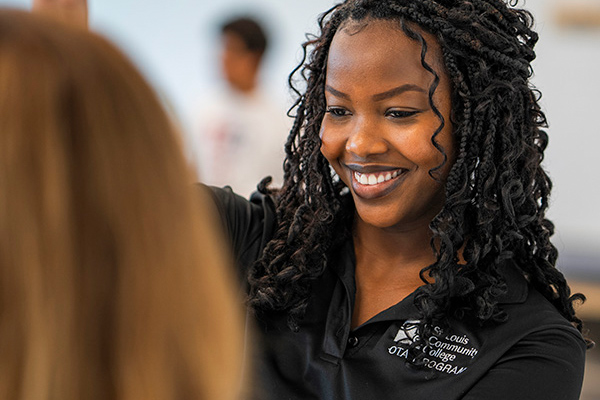
Her parents almost never talk about the war; the atrocities; the genocide.
Nobody knows how many Tutsis died during those 100 days of unimaginable horror in 1994. Estimates range from 500,000 to a million; 5,000 to 10,000 a day. Slaughtered and assaulted in unspeakable ways.
Esperance Sabato’s family is Tutsi. They survived.
Sabato’s parents and two of their children escaped to the Gihembe Refugee Camp in Rwanda – two died as the family was displaced again and again and again during the war. Her parents had four more children in the camp, including Sabato in 2003.
She’s on the cusp of realizing her parents’ dreams of a life that was unattainable in Africa. Sabato, 21, is scheduled to graduate from St. Louis Community College in May 2025 with an associate of applied science in occupational therapy.
“They’re very happy,” Sabato said. “Even when they’re the most struggling, they’d do anything to give me what I needed.
“They know how important school is because my mother wasn’t able to go to school. Whenever she was in school, they took her out just for another boy from her family to go to school. In our culture, they think guys should have more things than girls. Even though she was very smart and passionate about school. She knows how important it is for a woman to get an education.
“That’s what keeps me motivated to continue school.”
The Past
Sabato and her siblings rarely heard about what their parents experienced before the camp. Sometimes, late at night, her dad might say a few things but not much. Her mother never said a word as Sabato grew up; she still doesn’t.
Neither parent revealed how hard living in the camp was, either. They stayed positive for their children even though the family had little in Gihembe. Food was scarce. Money scarcer.
“Because I was younger, I didn’t know any better,” Sabato said. “It was not the best situation, of course. That’s all we knew, so we didn’t know it was tough until we came here. Our parents made sure we were happy.”
Her father, Gilbert Nshimiyinamana, worked in security for a trucking company to make certain loads were not hijacked. (Culturally, every member of Sabato’s family has a different last name.) He was once left for dead after his truck was attacked. He survived only because soldiers happened upon him.
His job kept him apart from his family. He came home Fridays to attend church only to leave Saturday evenings to return to work.
Her mother, Damarce Muhinjishi, took care of the rest. She worked, got water, did the laundry, saw her children off to school and met them when they returned, and whatever else required.
When the family needed money, she’d sell charcoal, trinkets and fruit in the market. The charcoal provided the most but was the hardest to obtain. Muhinjishi would walk about five miles, down a steep and long hill to retrieve the product, only to have to trudge back up the long and steep hill to return to her family in their stick and mud hut.
Water, Sabato said, was farther away.
“All I remember, we used to walk and walk and walk and walk and go up a hill and it felt like hours,” she said. “When we went there to wash our clothes, we’d go there in the morning, and we’d come back in the evening.”
More often than not, Esperance’s mom went to get the water for the family. She’d leave at 5 a.m., and return around 8 p.m.
And each night, after Muhinjishi made certain her children had enough to eat, she would feed herself. When there was nothing left, she told her kids she had already eaten. She hadn’t.
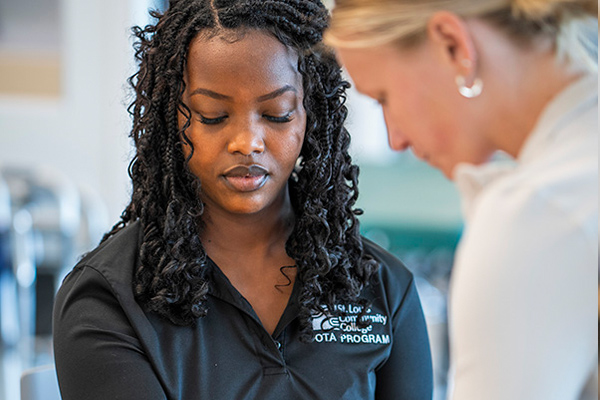
Transitional Period
After 18 years in Gihembe, Sabato’s family immigrated to the United States in 2014 when she was 11 years old. They were placed in St. Louis mostly by happenstance as the Tutsi refugees were scattered across the globe to clear out the camp.
“My parents described the United States like it was heaven,” Sabato said. “So, we were happy. It was way better than what we had.”
Life is better, here. Better than Gihembe, for sure. Easy, though, no.
Sabato’s parents struggle with English and both have jobs that don’t pay particularly well and aren’t particularly enjoyable. Her mom has problems with her hip and has dealt with other serious health issues. Nshimiyinamana and Muhinjishi want to help their daughter but don’t have the means.
Sabato understands. She knows they support her and provide what they can. She knows if she’s going to get a college degree, she’s going to have to do the work and figure out how to pay for it.
But she has an opportunity. She learned English and attended grade school. She went to high school. She entered college.
This wouldn’t have happened in Rwanda. If she was still there, she knows, she’d be married and expected to have children.
That’s not what she wants for now.
Getting an Assist
As a devout member of the Seventh-Day Adventist Church her entire life, Sabato attended a church-run boarding school run in high school and matriculated to a church-affiliated college in Nebraska. It only made sense. The Nebraska school continued her affiliation with the church, and it provided a $30,000 yearly scholarship.
Or so she thought.
It turns out the scholarship was to be spread out over four years and actually covered very little of the cost. It was too expensive for Sabato. She came back to St. Louis in the spring of 2022 with little to show for her experience except for debt.
She got a job, learned how to drive, bought a used car, and started classes at STLCC-Forest Park.
She chose the College because it’s near her South City home and offers an occupational therapy assistant program, which she’s been interested in since her junior year in high school.
But balancing work and the rigors of studying has proven difficult for Sabato. She has worked through much of her education, but as the more challenging her studies became the more difficult it became to balance work and school. In Fall 2023, she didn’t think she had a choice.
Her family was struggling financially, her mom was ill, she owed her former school money she didn’t have and it refused to release her transcripts before she paid. Without her transcripts, she couldn’t fill out the FASFA form. No FASFA, no money.
“I could easily have stopped going to college and worked so that my mom could sit, but she didn’t want that,” Sabato said. “She said, ’You have to go to school, you have to graduate.’ Her goal is that we are all happy.”
Claire Rone and College Bound wanted to see Sabato get her degree, too.
College Bound works with first-generation students to help them “live lives of choice and opportunity.” Essentially, it does whatever it can to help their clients get through school. The help comes more from getting to know the students more than from any metric they might meet. Each person is different with different needs.
The group was tabling outside the STLCC-Forest Park library in the fall of 2023, spreading the word about the organization. Sabato happened upon the table and was directed to the College Bound office where she learned more.
The nonprofit organization recognizes there are many barriers to students completing higher education. It supports students through an individualized approach based in deep relationships and assessment of academics and stabilization needs to increase the likelihood of graduating with a degree or certificate within four years.
“As our staff got to know Sabato’s story we were able to identify demonstrated financial need and degree pathway navigation as the primary barrier to degree completion. Thanks to a grant provided by the STLCC Foundation we have been able to intervene financially and pay for her tuition for the past two years,” Rone said. “She was also able to work with our stabilization services team to get support fixing her tires so that she had reliable transportation, another potentially destabilizing event on her pathway to graduation.
“Our program model of high engagement/frequent contact over the course of many years allows us to get to know their strengths, their challenges, their goals and from there work to develop foundational college navigation skills, social and emotional learning skills, and ease financial burdens for students who are out of other options."
As Sabato talks about her experience with College Bound, her eyes fill with tears. She felt stuck, wanting to continue school, but not certain how to do it without the finances to do so. She didn’t know how. She wasn’t certain there was a way.
The day she learned about College Bound, Sabato went to the organization’s office on the Forest Park campus, signed up, and, before she left, had her books paid for.
“I was so amazed,” Sabato said. “I went home, and said ‘Mom, you won’t believe this. There are people helping students graduate.’ I was shocked.
“I’ve been so grateful for being in College Bound and I don’t think I could be anywhere without them.”
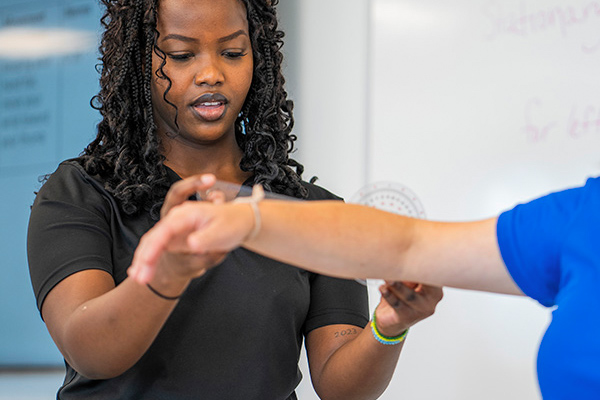
The Future
Her junior year in high school, Sabato started thinking about what kind of career she wanted. She had little idea. She knew she wanted a position where she could help others and she knew she didn’t want to work in an office building. Cubicles were not in her future.
So, she turned to what so many people lean on when they need direction in life.
“I think I searched ‘what are some jobs, people are satisfied with,’’’ she said. “The Google said that people are really happy in sonography, occupational therapy, and I think, physical therapy, too.”
Occupational therapy is a health profession where a person works with people of all ages to help them do what they want and need to do in their daily life. Whether a client needs to relearn how to perform activities of daily living after an illness, participate fully in school while having a developmental delay, or live at home safely as they age, occupational therapy helps people reach the highest functional level possible.
Sabato said she enjoys the hands-on aspect of occupational therapy and that she finds all of her classes intriguing. They each offer something different, and they often allow her to get out of the classroom and look at buildings – the doorways, the sinks, the elevators – all a bit differently than she would have before she started studying.
Someday, she hopes to return to school to become an occupational therapist. For now, she’s just seeking to learn as much as she can and to grow into a new role; from refugee, to immigrant, to college graduate, to occupational therapy professional.
“Esperance sees each day of class as an opportunity,” said Rose McAndrew, OTD, the academic fieldwork coordinator and an assistant professor at St. Louis Community College. “She epitomizes the growth mindset we, as instructors, are trying to instill in our students for lifelong learning. If she makes a mistake, she sees it as another chance to learn and get it right.
“She entered the OTA program quiet and somewhat reserved, but throughout the last year, I've really seen her really open up to her cohort and her instructors. She always has insightful ideas and isn't afraid to take a guess even if she's not sure. She builds great rapport with her peers, which I know she will do with her patients and clients once she becomes an OTA.
“I am excited to see her become my occupational therapy colleague.”
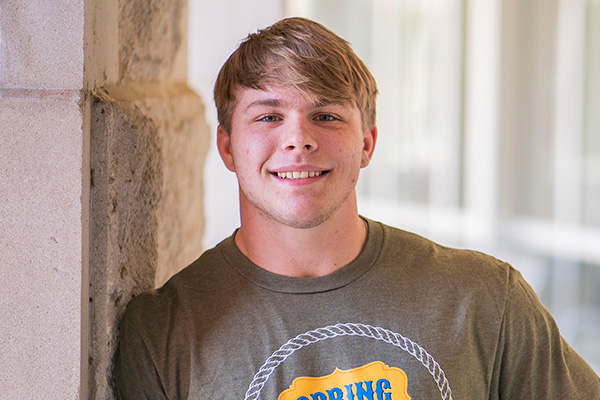
Going the Distance: Joey Bowman’s First Semester at STLCC
Discover how Joey Bowman transformed his life during his first semester at STLCC, balancing studies, work and athletics with determination.
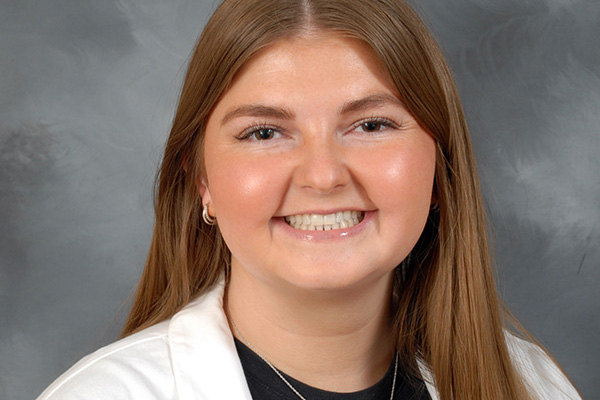
Stepping Stones to Success
After overcoming obstacles, Julie Howard earned her nursing degree at STLCC and is ready to start her career as a cardiac...
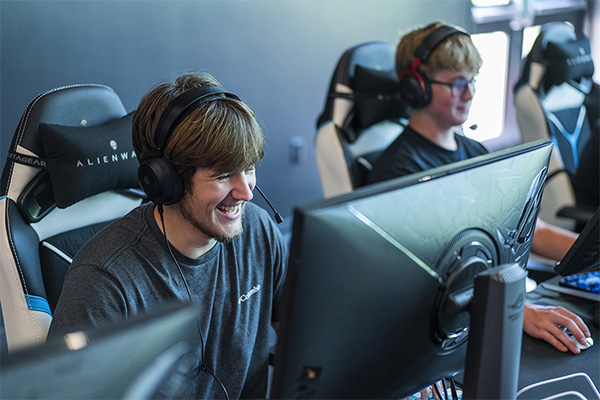
Inaugural College Esports Season Begins for Archers
STLCC Archers kick off inaugural esports season with a 6–2 record, competing in Valorant, Overwatch 2, Smash Bros and Street Fighter 6.
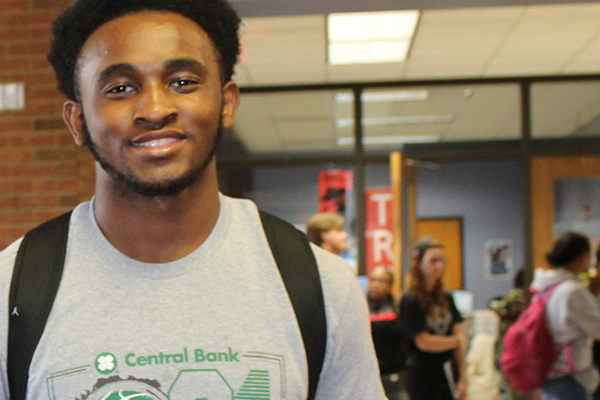
Thumbs-up Given to National Hispanic Heritage Month Tasting
STLCC honored Hispanic Heritage Month with a Latino Cuisine Tasting featuring Mexican food, music and culture.

Archers Look to Bring Energy, Return to Winning Ways on the Field
STLCC Archers baseball aims for a strong 2024 season with returning talent and renewed energy under Coach Scott Goodrich.